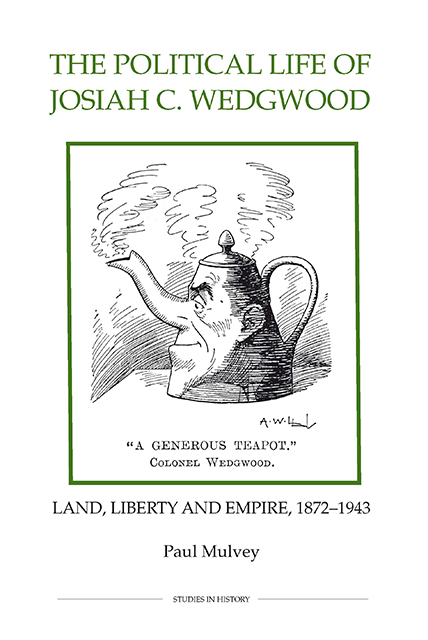7 - The re-shaping of British politics
Published online by Cambridge University Press: 02 March 2023
Summary
Russia and war aims
Wedgwood, while eager for Britain to recognise the new Russian government, was also under no illusions as to its fragility or unwillingness to continue the war. Thus, in early December 1917 he sent Lord Robert Cecil (under-secretary at the Foreign Office) a memorandum about the need to bolster Anglo-American influence in Siberia in the aftermath of the Bolshevik Revolution and the possible break-up of Russia. Cecil apparently showed the memo to the Cabinet, who agreed to send Wedgwood to see the Siberian government at Tomsk. In a letter to Colonel House, Wedgwood explained that he feared that Russia might now become a German dependency, rather as India was to Britain; outlying regions should therefore be induced to break off, particularly Siberia. His reasons for choosing Siberia were interesting, revealing as they do elements of Halford Mackinder's geopolitical theories and other Edwardian ideas about racial struggle – the old imperialist in Wedgwood was not dead yet: ‘Siberia is furthest from Germany, and nearest to the Anglo-Saxon Union. It is the country of the future, the extension of the American Far West, as important for the English speaking peoples to expand into, as Russia proper is important to Germany.’ Drawing a parallel with India during the Seven Years War, Wedgwood told House that now was the time to send a ‘few men of action’ into Siberia to ‘engineer what was required’ to establish a friendly local government.
Quitting the unpaid part-time job that he had held for the previous month as assistant director in charge of trench furniture at the Trench Warfare Department, and travelling as an honorary colonel (a rank he henceforth appended to his name), he left in January 1918 with two aides, travelling via America, Tokyo, Korea and Peking to Harbin. There he discovered that the Tomsk government had fallen, so went instead to Vladivostok, arriving on 14 March 1918. While he was there the Bolsheviks signed the treaty of Brest-Litovsk, dashing a brief hope that he had entertained of finding Trotsky and persuading him not to treat with the Germans. Wedgwood quickly realised that the Bolshevik regime was there to stay, and that any War Office attempts to persuade the Japanese to march through Siberia to fight Germany would only throw the Russians into Germany's arms.
- Type
- Chapter
- Information
- The Political Life of Josiah C. WedgwoodLand, Liberty and Empire, 1872-1943, pp. 83 - 94Publisher: Boydell & BrewerPrint publication year: 2010



